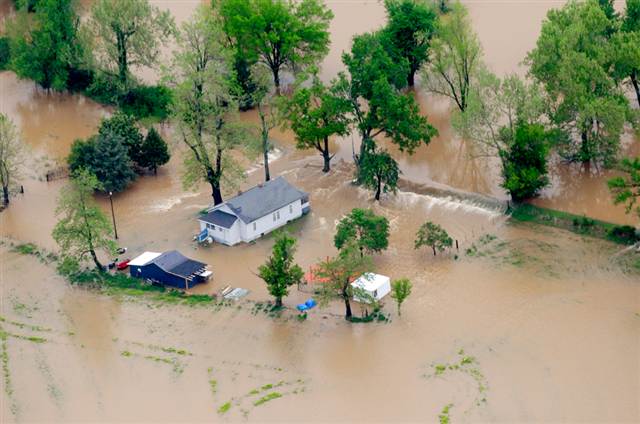The U.S. DOT announced this morning that it’s allocating almost $1.6 billion for repairs to roads and bridges that were damaged in recent floods and storms. If House Republicans had gotten their way, this money would have come out of high-speed rail funds.

The House voted in July to transfer over a billion dollars of high-speed rail funds over to flood relief, but according to sources at U.S. DOT, "there has been no effort" to tie today's emergency appropriation to a rescission of high-speed rail funding. Indeed, these dollars came from the omnibus funding bill that passed last month.
U.S. DOT had the chance to spend the money on rail projects quickly enough that by the time they could start on the emergency relief appropriation, the money would have already been spent out. That's just what happened. So, instead of the $1.028 billion going to the Army Corps of Engineers for relief work, it went to rail projects as intended.
It’s good to see that these essential emergency relief funds were spent without cutting into HSR. Cloaking a partisan attack on a Democratic program in disaster relief was a cynical move by House Republicans.
These communities, from Maine to Montana, never should have had their recovery from 2011's devastating storms made into a political football. Besides, increasingly extreme weather events are likely tied to the larger trend of climate change. It's a little short-sighted to apply a band-aid to disaster relief while hobbling development of a transportation mode that could, potentially, reduce climate change and the disasters it causes.
It’s also worth noting that some Republican senators have proposed eliminating Transportation Enhancements to cover bridge repair. But even if Congress had zeroed out the Enhancements program to cover the disaster relief bill, it would have come up far short. The entire TE program – for bike/ped, historic preservation, billboard removal and a host of other programs – cost $928 million last year. Using that whole amount, we’d still come up far short of what the DOT was able to do today to promote recovery from natural disasters.
And even that is far below most expert estimates of what’s really needed. Whether you believe in the ASCE prognosis of a $2.2 trillion shortfall for infrastructure maintenance and repair, or your own wish list is a little more humble, it’s clear that pinching cash off other worthwhile programs is not the way to restore disaster-affected areas.





